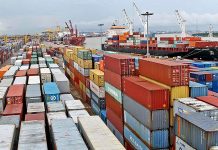
AP Møller Maersk has announced it will put the world’s first carbon neutral liner vessel in operation by 2023, accelerating its decarbonisation processes.
The Danish carrier’s methanol feeder vessel set to be ordered this year will have a capacity of around 2,000TEU and be deployed in one of its intra-regional networks. While the vessel will be able to operate on standard very low sulphur fuel oil (VLSFO), Maersk plans the vessel to operate on carbon neutral e-methanol or sustainable bio-methanol from the first day.
Maersk pointed out that it is seven years ahead of the initial 2030-ambition and noted that all its future newbuildings will have dual fuel technology installed, enabling either carbon neutral operations or operation on standard VLSFO.
Both the methanol-fuelled feeder vessel and the decision to install dual fuel engines on future newbuilt vessels are part of Maersk’s ongoing fleet replacement.

“Our customers expect us to help them decarbonise their global supply chains, and we are embracing the challenge, working on solving the practical, technical and safety challenges inherent in the carbon neutral fuels we need in the future,” said Søren Skou, CEO at AP Møller Maersk and he went on to highlight, “Our ambition to have a carbon neutral fleet by 2050 was a moonshot when we announced it in 2018. Today we see it as a challenging, yet achievable target to reach.”
A carbon neutral future for shipping requires innovation, test and collaboration across multiple industry partners, according to Maersk, which said it continues to explore several carbon neutral fuel pathways and expects multiple fuel solutions to exist alongside each other in the future. Methanol (e-methanol and bio-methanol), alcohol-lignin blends and ammonia remain the primary fuel candidates for the future.
A collaboration partner is the Mærsk Mc-Kinney Møller Center for Zero Carbon Shipping, an independent, non-profit research and development center, that works across sectors, organisations, research areas and regulators to accelerate the development and implementation of new energy systems and technologies.
“It will be a significant challenge to source an adequate supply of carbon neutral methanol within our timeline to pioneer this technology. Our success relies on customers embracing this groundbreaking product and strengthened collaboration with fuel manufacturers, technology partners and developers to ramp up production fast enough,” commented Henriette Hallberg Thygesen, CEO of fleet & strategic brands at AP Møller Maersk.
Around half of Maersk’s 200 largest customers have set, or are in the process of setting, ambitious science-based or zero carbon targets for their supply chains, and the figure is on the rise, according to the company’s announcement.








